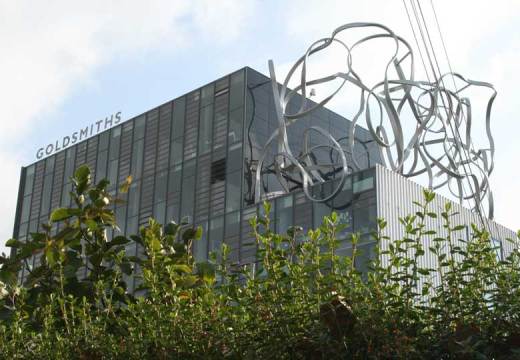Three years ago, a mysterious middle-aged man contacted the curator of Berlin’s C/O Gallery, Felix Hoffmann, out of the blue and handed over a battered old suitcase crammed with enchanting vintage silver gelatin photographs. That person was Peter Krüger, son of Lore Krüger – a woman who was erstwhile unknown to the photography world, yet one whose work would prove to be a discovery almost in parallel with new-found luminary Vivian Maier and her startling 1950s New York City street photography.
The resulting world premiere retrospective of around 100 prints tells the story of a young German Jew born on 11 March 1914. From her birthplace Magdeburg, a medieval city in the centre of Germany, Krüger’s odyssey took her through Europe and the Americas, including a stint at the Gurs internment camp in the Pyrenees. Her photographs span a period between 1934 and 1944, in parts evoking László Moholy-Nagy’s ‘New Seeing’ movement, and offering a sharply political edge (Krüger studied Marxism at Berlin’s Freie University, debated with intellectuals such as Walter Benjamin, and helped found the anti-fascist exile newspaper The German American).
Fleeing the persecution that came with the rise of the National Socialists, Krüger emigrated to London in 1933, and began a dizzyingly nomadic lifestyle that she documented using her waifish 35mm E Ludwig Lausa Dresden Vidar camera. It’s a picture from this year that was we see first in the show – a self-portrait of the determined, soft-eyed 19-year-old in a coarse dress, hand planted on hip, eyebrow arched. Beside it, there is another portrait of Krüger – in Paris, after a year spent training as a photographer in Barcelona – this time taken by Bauhaus graduate Florence Henri, under whom she studied. In it, the effusive confidence from just two years before appears to have been slightly weathered, now revealing a pensive, troubled and profound beauty.
Krüger’s Paris photographs from 1935 reveal a young woman revelling in the smaller freedoms that had become part of her new life: tea crockery sets stack up, vinyl records fill a frame, and bunches of succulent fruit are the focus of another. Yet her captures of people are the more compelling and reveal the German’s deep-seated compassion for humanity. One man lazily lies reading upon a pile of bricks, a labourer cheekily grins at the camera, whereas Hungarian writer Charles Sirato ponders meditatively – just one of the exiled European intellectuals that she recorded, alongside Dr. Kurt Rosenfeld and trade unionist Gustav Faber.
Krüger’s darkroom experiments with multiple exposures and montage reflect an innovative strand in the vein of Sonia Delaunay and Hannah Höch. But this is standard experimental fare. It is only when Krüger focuses on a sort of social documentary that the results become captivating. Her ‘Gitans’ series taken at the French pilgrimage site Saintes-Maries-de-la-Mer is delicate reportage of the travellers who, in their horse-and-cart existence, smoke and breastfeed just like everyone else.
These are truly unique images: all of the negatives have been lost, meaning that they can never be reprinted. Each photograph on show has been lugged in a suitcase across the Atlantic, and each shows scuffs and marks as evidence of this journey. This adds to the unusually personalised perspective they provide on the political events that ravaged Europe throughout the period – in contrast to the conventional images of war and propaganda that we have now become accustomed to. Their discovery means that we can now consider Lore Krüger as among the most significant female photographers of the Weimar period.
‘Lore Krüger: A Suitcase Full of Pictures’ is at C/O Berlin until 10 May.
Related Articles
Picking the picture: Magnum Contact Sheets at C/O Berlin (Lily Le Brun)
‘Dennis Hopper: The Lost Album’ at the Royal Academy, London (Emma McKinlay)
What are we to make of posthumous art? (Daniel Grant)




















![Masterpiece [Re]discovery 2022. Photo: Ben Fisher Photography, courtesy of Masterpiece London](http://zephr.apollo-magazine.com/wp-content/uploads/2022/07/MPL2022_4263.jpg)
‘Like landscape, his objects seem to breathe’: Gordon Baldwin (1932–2025)